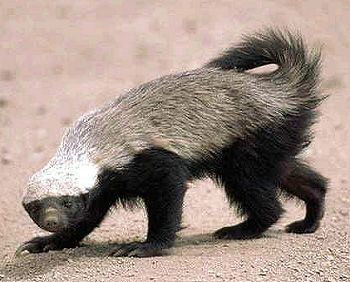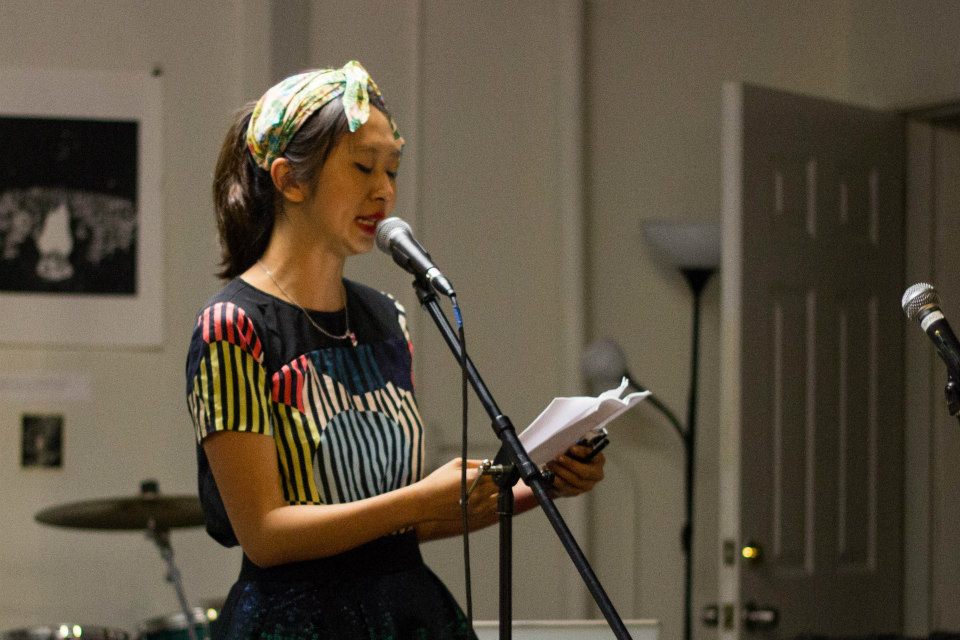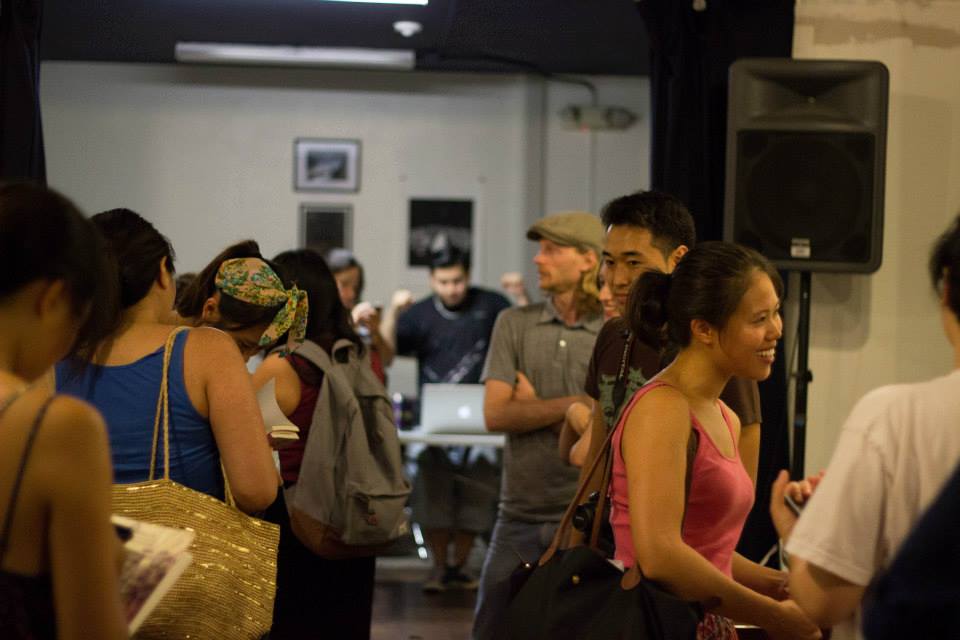In the epigraph for her poem "Mellivora Capensis," poet Sally Wen Mao reports that the honey badger—at least according to the 2002 Guinness World Records—is the world’s most fearless animal.

Following the poetry open mic, Mao, as part of the Honey Badgers Don’t Give a B**k! tour, performed the poem in a round-robin style poetry reading at EMW Bookstore with fellow poets and Kundiman Fellows Cathy Linh Che and Eugenia Leigh. Mao, in her signature style—crisp and luscious, cerebral as it is down to earth—explained why honey badgers are awesome and don’t give a damn. Honey badgers eat beehives for breakfast; an assortment of venomous snakes for a post-prandial snack; and they swipe prize meals from more formidable predators without batting an eyelid.

Built with an omnivorous appetite and thick skin, a specimen of Mellivora capensis courts danger regularly. Her genes, and perhaps environment, demand resilience. In the poem "Mellivora Capensis" from her collection Mad Honey Symposium (published by Alice James Books), Mao repeats twice, “A broken badger is not a sad thing.”
Why is a broken badger not a sad thing?
Cathy Linh Che read from her book Split (published by Alice James Books) in which she described the inheritance of anguish and the complicated role of family in moving past trauma. Eugenia Leigh, in turn, read poems from her forthcoming collection Blood, Sparrows and Sparrows, highlighting pieces on working through heartbreak, fear, and the death of a beloved artist. All three honey badgers read poems that in essence breathed air into stories of brokenness.
Common threads for the evening’s readings were the themes of surviving, containing multitudes, and being a self through and beyond trauma—physical, personal, abstract, institutional, symbolic, and more—and far larger foes. One salient message was that those traumas might mark us, but they do not mar us, do not make us.
Being broken is not a sad thing.
In several moments of the readings by Mao, Che, and Leigh, I found myself wondering how I could be more like the honey badger and wild of heart in what I see to be a fairly tame, domesticated existence. The poems delighted me and resonated deeply with my own struggles with being Asian-American and beyond (I guess, just a self).
In light of tangled identity politics, Mao’s poems written from the perspective of a wry Anna May Wong, an American-born Chinese-American Hollywood actress from the 1930s, particularly stood out to me. The Hollywood industrial machine limited Wong to roles that were, well, limiting—as a dragon lady, a Madame Butterfly, a lotus flower, a prostitute, a daughter of the villain, a great gal and seductress who never gets the leading man—and yet, she still glows on the silver screen, becomes her own star, and holds dignified court in spite of the times. There’s something true to life about living with constraints while also breaking through them, twisting out from under the claws of what holds us down, while fighting back and, perhaps, eating what is trying to eat us. Mao's honey badger in "Mellivora Capensis" declares the sentiment with lethal puissance: "Spit me out, larger beast—find my paws/ on your jaw, on your hipbone, on your feet./ [...]/ Find the waterbuck heaving/ in the swamp. Find gashes. Find heat./ Find skin molting but you won't find me."
Being able to contain multitudes, to be free and unfree at the same time, being able to take on—to devour—what cuts us the most deeply and keeps us awake at night—to take on bigger enemies—that, for me, reveals the true fearlessness of the honey badger and the three poets I saw that night.
After three sets of three poems from each poet, we lingered in the bookstore in awe and conviviality. It was like we were in a bookstore, but instead of books, we had people who contained poems and the tireless courage of the honey badger who is wise enough to know that being broken is not a sad thing.
Don't forget to check out the photo album on the EMW Bookstore Facebook page!




